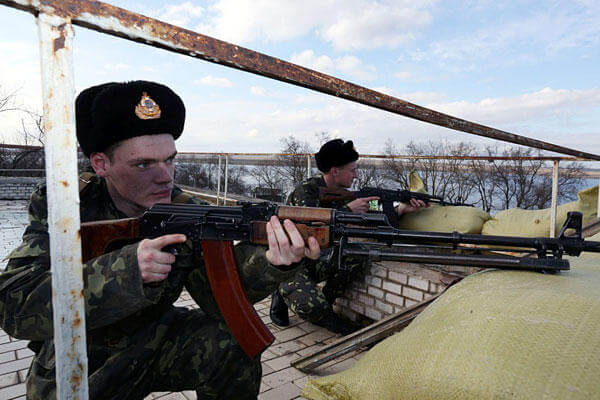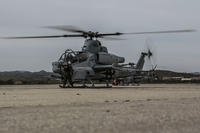The U.S. commander of NATO warned Sunday of the Russian military buildup on Ukraine's eastern frontier and the additional threat of another land grab by President Vladimir Putin in Moldova's Russian-speaking region of Transdniestria.
"There is absolutely sufficient force postured on the eastern border of Ukraine to run to Transdniestria if the decision was made to do that, and that is very worrisome," said Air Force Gen. Philip Breedlove, who also serves as the head of U.S. European Command.
"The [Russian] force that is at the Ukrainian border now to the east is very, very sizable and very, very ready," he said.
Breedlove's warnings came as President Obama prepared to leave for Belgium for talks this week with a G-7 summit of European leaders, China and Japan on a concerted allied response to the Ukraine crisis focused on the economic and political isolation of Russia.
"We are not going to be getting into a military excursion in Ukraine," Obama told NBC affiliate KNSD in San Diego last week.
In Moscow, Russian Deputy Anatoly Antonov denied that the forces on Ukraine's border had any aggressive intent.
"Russian armed forces are not undertaking any undeclared military activity that would threaten the security of neighboring countries," Antonov said, according to Russia's official RT news service. "We have nothing to hide."
Russian news agencies have reported that about 8,300 Russian troops, backed by artillery and tank units, have assembled on Ukraine's eastern border for military exercises, but Pentagon officials suspect that the force may be more than twice that size.
In remarks to the U.S. German Marshall Fund in Brussels, Breedlove said NATO was concerned that Putin was planning a land grab in Moldova under the guise of protecting ethnic Russians -- similar to what happened in Crimea.
Moscow may view Transdniestria as the "next place where Russian-speaking people may need to be incorporated," Breedlove said.
The former Soviet republic of Moldova, sandwiched between Romania and Ukraine, has increasingly been wrought by rising tensions with Russian-speaking separatists in the Transdniestria region.
Any move by Russian ground forces to Transdniestria would likely have to push through sectors of southeastern Ukraine.
The ominous moves by Russia meant that the chances of war were "quite high," Ukraine's acting foreign minister, Andrii Deschchytsia, said of the buildup.
"They are growing," Deschchytsia said of the prospects of conflict. "We don't know what Putin has in his mind," he said on ABC's This Week program.
"We are very much concerned about this development, the deployment of Russian troops on our eastern borders," Deschchytsia said. "We are ready to respond and, as you know, the Ukraine government is trying to use all the peaceful diplomatic means and diplomatic means to stop Russians, but the people are also ready to defend their homeland."
According to Pentagon officials, last Friday Defense Secretary Chuck Hagel stressed to Ukraine's defense minister, Ihor Tenyukh, "the need to find a diplomatic, peaceful resolution to this crisis."
Hagel praised the restraint shown by Ukrainian forces in Crimea and told Tenyukh that the U.S. was reviewing Ukraine's urgent request for immediate military assistance in the face of Russian threats. Thus far, the U.S. has only committed to sending 25,000 Meals, Ready to Eat, to Ukraine but there was no timeline on when the rations from the European Command would arrive.
In a separate phone call initiated by Hagel, Russian Defense Minister Sergei Shoigu gave assurances that the Russian troops on Ukraine's border were there "to conduct exercises only, that they had no intention of crossing the border into Ukraine, and that they would take no aggressive action," said Rear Adm. John Kirby, the Pentagon press secretary.
To shore up Ukraine's military, Rep. Mike Rogers, R-Mich., chairman of the House Intelligence Committee, called on Obama to approve the shipment of small arms and communications equipment to Ukraine.
"We need to be a little bit tougher with Putin, or he is going to continue to take the territory," Rogers said on NBC's "Meet the Press."
"[Putin] goes to bed at night thinking of Peter the Great, he wakes up thinking of Stalin," Rogers said.
-- Richard Sisk can be reached at Richard.Sisk@monster.com.





























